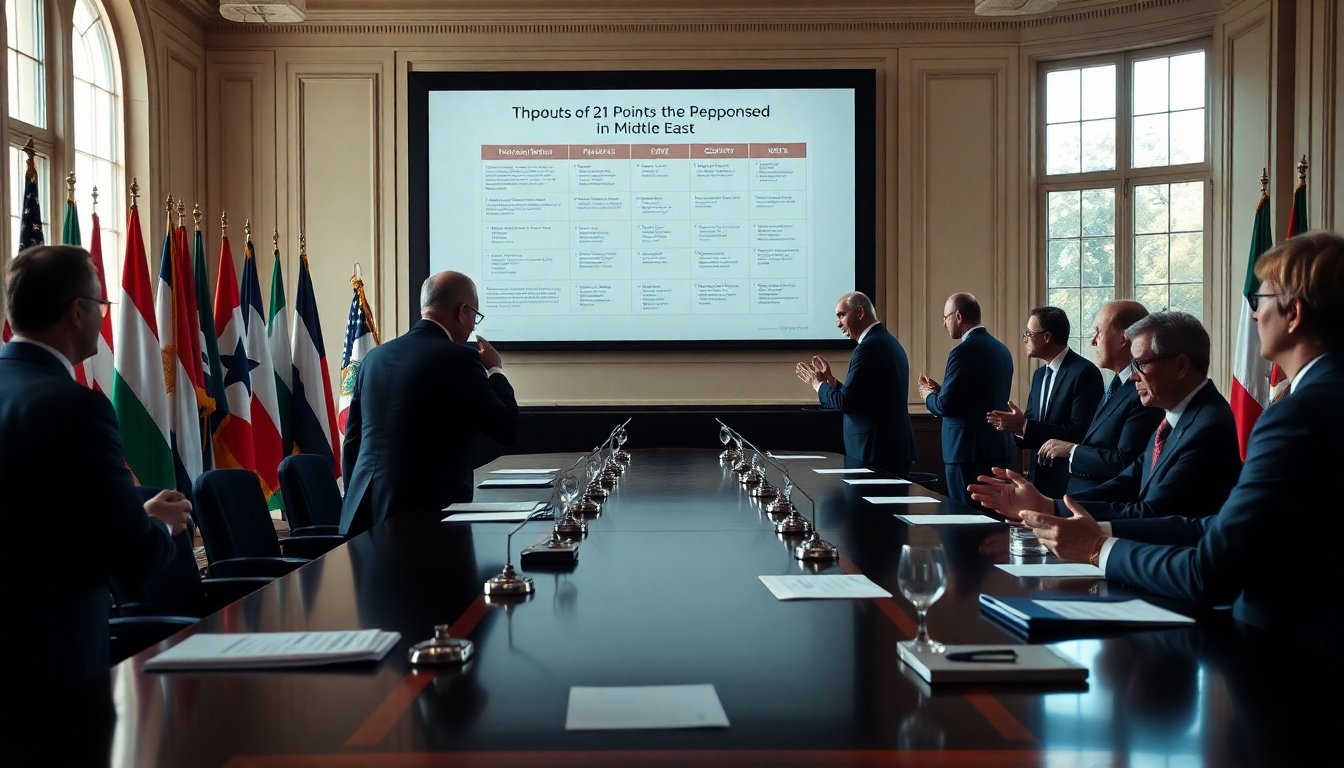Table of Contents
US Unveils 21-Point Strategy for Middle East Peace
In a significant diplomatic initiative, the President of the United States has introduced a comprehensive 21-point strategy aimed at fostering peace in the Middle East, with a specific focus on the ongoing tensions surrounding Gaza. This plan, shared with various Arab and Islamic nations, could represent a crucial moment in regional diplomacy.
During a recent meeting on the sidelines of the United Nations General Assembly, US envoy Steve Witkoff, a close associate of President Trump, expressed optimism regarding potential advancements related to Gaza in the near future. Witkoff, who serves as a diplomatic envoy, conveyed the president’s vision for addressing longstanding issues in the region.
Details of the 21-Point Peace Plan
The recently introduced initiative, known as the Trump 21-point plan, seeks to address the complex concerns of both Israeli interests and broader regional dynamics. At the Concordia Summit, Witkoff emphasized that the proposal has been developed with input from neighboring countries, highlighting its collaborative nature in pursuit of peace.
Alignment with Regional Concerns
Witkoff expressed optimism that this initiative could lead to the breakthrough many have anticipated. He stated that the plan is designed to reflect the fears and aspirations of the involved regional parties. “We believe this approach will facilitate a constructive dialogue,” he noted, suggesting the potential for renewed negotiations.
French President Emmanuel Macron recently met with U.S. President Donald Trump, suggesting that their discussions may have influenced a new peace proposal. This proposal could incorporate elements previously discussed with Trump, potentially offering a more comprehensive international perspective. Such an approach may enhance its acceptance among various stakeholders involved in the peace process.
Potential Impact on Gaza and Beyond
The implications of the 21-point peace initiative reach far beyond the borders of Gaza. If successfully implemented, this plan could significantly alter the geopolitical landscape of the Middle East. It may encourage additional nations to engage in constructive dialogue and collaborative efforts. The peace process has faced long-standing challenges, and this new strategy could chart a fresh course for resolution.
Hope for Lasting Resolution
As discussions about a peace plan progress, anticipation is building. Witkoff has expressed confidence in the possibility of a resolution that tackles the underlying issues contributing to regional conflicts. “We’re hopeful, and I might say even confident, that in the coming days we’ll be able to announce some sort of breakthrough,” he remarked, reflecting the prevailing optimism surrounding this initiative.
In light of ongoing conflicts and humanitarian crises, any steps toward peace are noteworthy. Emphasizing collaboration and mutual understanding among nations could pave the way for a more stable and peaceful Middle East.
Conclusion: A New Chapter in Middle Eastern Diplomacy
As global attention turns to the evolving situation, the Trump 21-point plan signifies more than just a diplomatic initiative; it embodies a renewed hope for the region’s inhabitants. The potential outcomes of this strategy could profoundly impact political alliances and the daily lives of millions affected by ongoing conflicts.
Ultimately, the success of this plan hinges on the willingness of all parties to participate in open dialogue and reach compromises. The upcoming days will be critical in assessing whether this ambitious peace proposal can genuinely reshape the dynamics of Middle Eastern relations.


